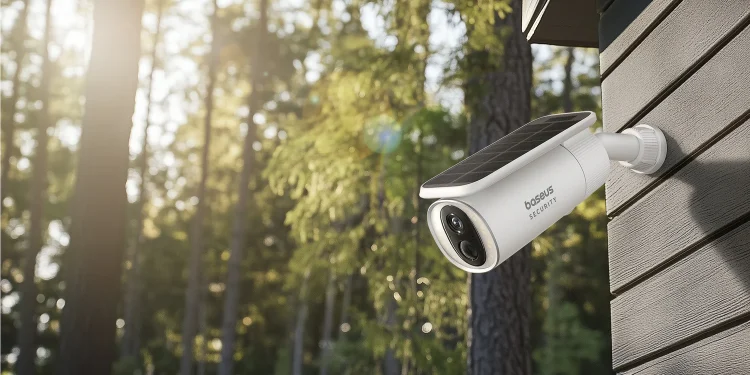Baseus Security | Privacy First. Reliable Always.

Wired vs Wireless Security Cameras: Choosing the Right Option for Your Home
In today’s fast-paced world, protecting your home and loved ones has never been more important. Security cameras are no longer a luxury—they are a necessity. When searching for the perfect solution, one of the most common debates is wired vs wireless security cameras. Both options offer unique advantages, and understanding the differences can help you choose the best system for your specific needs. At Baseus Security, our goal is to provide reliable, privacy-first solutions that give you complete peace of mind.
Wired Security Cameras: Stability and Reliability
Wired cameras are often considered the traditional choice for home and business surveillance. These cameras are physically connected to a central recording system using cables. Because of their direct connection, they are highly reliable and deliver consistent video quality without depending on Wi-Fi signals.
Advantages of wired cameras include:
-
Stable connection: No interference from weak Wi-Fi signals or network congestion.
-
High-quality video: Wired systems can handle higher bandwidth, ensuring crisp and clear footage.
-
Long-term durability: Once installed, wired cameras require minimal maintenance.
However, the main drawback of wired systems is their complex installation. Running cables through walls and ceilings can take time and effort, and moving cameras later may be inconvenient. Still, for large homes or businesses that require uninterrupted surveillance, wired cameras remain a solid option.
Wireless Security Cameras: Flexibility and Convenience
As technology evolves, wireless cameras have gained popularity for their ease of use and versatility. Unlike wired systems, these cameras transmit video footage via Wi-Fi, eliminating the need for extensive cabling.
Advantages of wireless cameras include:
-
Easy installation: No drilling or wiring, making them ideal for renters or quick setups.
-
Flexibility: Cameras can be moved easily to different locations as your needs change.
-
Smart features: Many wireless models include remote access via smartphone apps, motion detection, and cloud storage.
The main limitation of wireless cameras is their reliance on Wi-Fi and power. Weak signals can affect video quality, and most models still require a power source, although some come with rechargeable batteries.
Wired vs Wireless Security Cameras: Which One Is Right for You?
Choosing between wired vs wireless security cameras depends on your priorities:
-
If you want reliability, stability, and 24/7 monitoring, a wired system is ideal.
-
If you value convenience, flexibility, and modern smart features, wireless cameras are the better choice.
For many homeowners, a hybrid system—using both wired and wireless cameras—offers the best of both worlds. For example, wired cameras can cover critical entry points, while wireless cameras monitor less accessible areas or temporary spaces.
Baseus Security: Your Trusted Partner in Safety
At Baseus Security, we understand the importance of both privacy and reliability. That’s why our solutions are designed to give you complete control over your security system, whether you prefer wired, wireless, or a combination of both.
By choosing Baseus, you’re not just installing cameras—you’re investing in peace of mind. With our advanced technology, secure data handling, and customer-first approach, we ensure that your home and family remain safe, always.
Privacy First. Reliable Always. That’s the Baseus Security promise.






